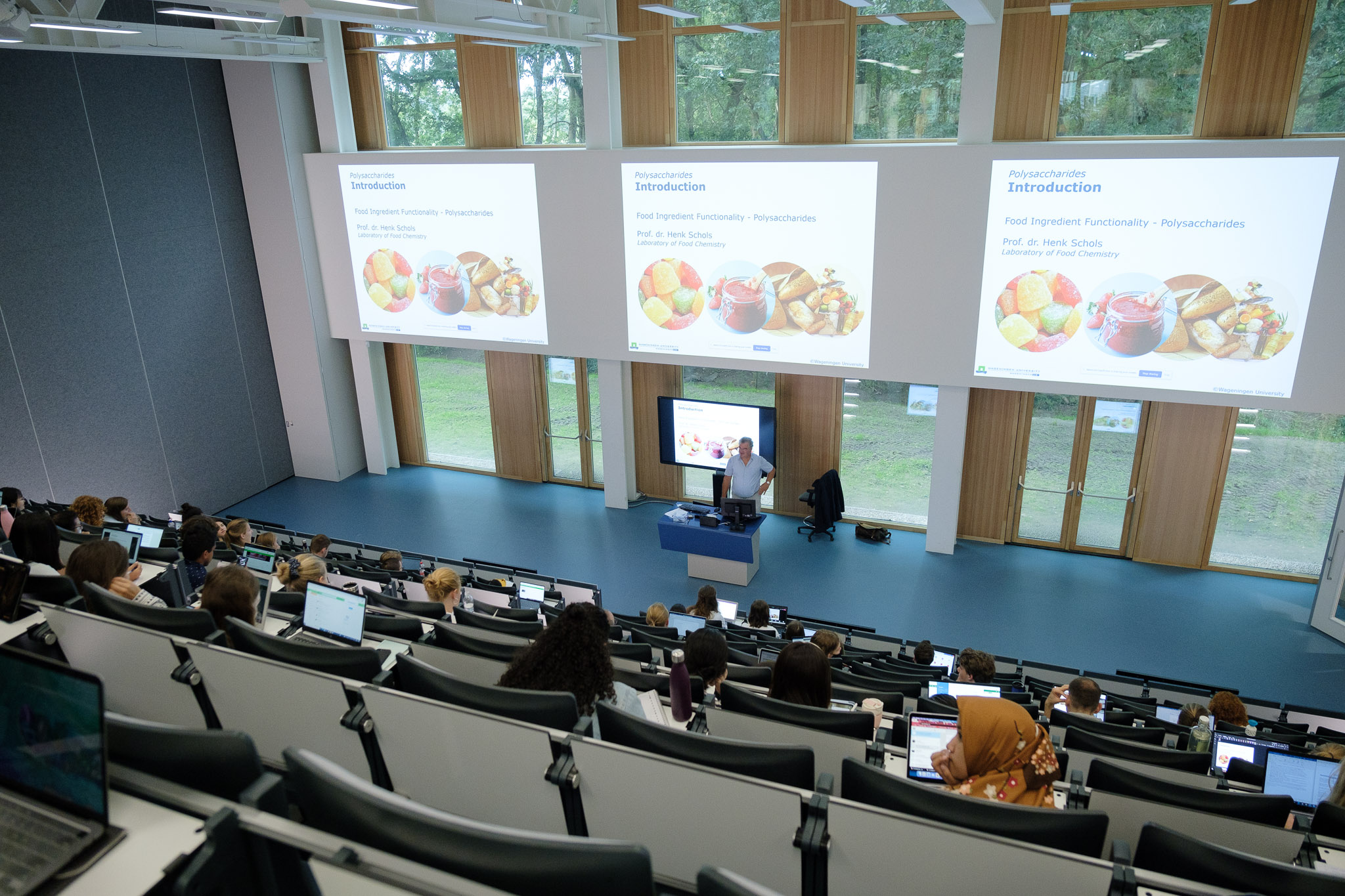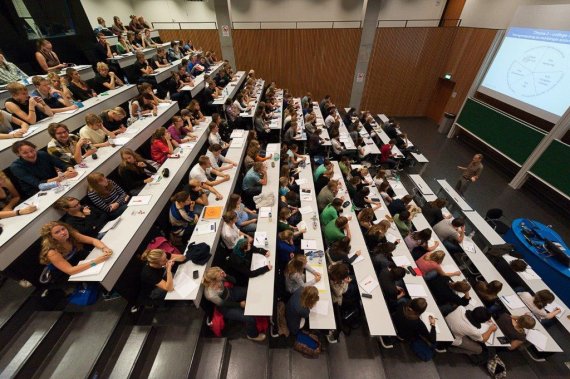Omid Noroozi, associate professor of Technology-Enhanced Transformative Learning at WUR, has been doing research on peer feedback – students commenting on each other’s work – for over a decade. Both his findings and a quick survey among students by Resource suggest that the instrument must be used in the right way to benefit from its potential.
‘Giving and receiving quality feedback can enhance student’s learning, critical thinking, engagement, motivation, satisfaction and more,’ says Noroozi. ‘Peer feedback can also significantly reduce teachers’ workloads, especially in big classes. But to benefit from its full potential, merely asking students to give each other feedback is not enough.’
A survey of Resource student editors confirms this. Feedback from peers is often perceived as less reliable compared to feedback from teachers. Students’ ‘peer feedback literacy’ varies too, says Noroozi. ‘And then there are cultural differences too, which can play a role.’
As a result, the final version of students’ work (after perhaps two rounds of feedback) is sometimes hardly any different to the first version. Noroozy: ‘In that case we might well wonder what the point of peer feedback is. Luckily, some small adjustments in how we use peer feedback can lead to significant improvements in learning outcomes.’
‘Could be better’
To ensure that students give each other useful feedback, teachers should start by giving them clear instructions on what is expected of them. General guidelines on peer feedback principles can be helpful for maximizing the benefits, thinks Noroozi. He proposes a short, compulsory training course on feedback – which does not exist at present. ‘Students need to learn how to identify what is wrong with a peer’s work and how to provide a clear critique; how to offer constructive suggestions – also known as “feedforward”, because it helps someone progress; how to identify the strong and weak points of the work, and so on. Sometimes students just write “could be better” or “this is good”, but that’s not much use. Say what is good about it.’
Another key topic in a training course should be justifying feedback. ‘Well-argued feedback is more likely to be implemented by recipients,’ Noroozi says. ‘Justified feedback also enhances the learning experience for the feedback provider. Research shows that feedback providers may actually learn more from the process than feedback recipients.’ A training course on feedback should also cover how to receive feedback, says Noroozi. ‘Students on the receiving end should be reminded not to take critical feedback personally, but rather to analyse, reflect and act upon it.’
Constructive criticism
Noroozi offers fellow teachers two tips from his own practice. ‘I show my students a video on peer feedback principles. That improves the quality of the peer feedback a lot.’ He also gives his students clear feedback guidelines. ‘I suggest using the sandwich format: starting with something positive, then providing critical feedback, and ending with something positive again. Praise reassures the recipient that their peer recognizes both strengths and weaknesses,’ says Noroozi. ‘In short, feedback should be “critical yet constructive” instead of “critical and destructive”.’
Lastly, Noroozi prompts students in his classes to engage in meaningful reflection on peer feedback by encouraging them to consider what they’ve learned, identify the strengths highlighted, and draw up action plans for improving their work. ‘And finally, to maximize peer feedback benefits: get the givers and recipients of feedback to engage in a dialogue. This gives you a chance to clarify things and might even reveal new insights that benefit both parties.’
Students on how it works
Three Resource student editors reflect on peer feedback in Wageningen education.
Ilja Bouwknegt (Master’s student of Forest and Nature Conservation):
‘I’ve noticed that peer feedback is taken more seriously in my Master’s than it was in my Bachelor’s. Recently I suddenly found out that my feedback – four comments on a classmate’s work – counted towards my grade. I lost one point. So the next time I went over the top and gave 14 comments. I only considered a couple of them really important – the rest were just for show, so I would get a better grade. That worked: I gained a point. But I doubt whether the recipient got more out of my feedback than the first time.’
Linde Klop (Bachelor’s student of Environmental Sciences):
‘Good feedback takes time. Since hardly anyone has time, people usually do it half-heartedly, but that’s no good to anyone. If the feedback counts towards your grade, people put more effort into it. An advantage of peer feedback is that you get an idea of your classmates’ level. That can be helpful but it can also be stressful, if their work is of very high quality, for example.’
Femke van den Dries (Master’s student of Geo Information Science):
‘I was taught how to give feedback in my first Bachelor’s course. For instance, to identify strong points as well as points for improvement, and to give specific tips. Peer feedback is used in nearly every course I take. You see what someone else is doing and you can learn from that. Giving feedback is a useful skill. But it’s a pity when you put a lot of effort into your feedback and then you only get a tiny bit of feedback from a fellow student.’

 Illustration Valerie Geelen
Illustration Valerie Geelen 


In addition to the above. As a lecturer I have noticed that it helps students a lot if they get (lecturer) feedback on their peer review and how to handle it.
For example, in our new MSc level course (Advanced Consumer Studies) students discuss peer feedback in 5-6 member group sessions every week moderated by an expert/lecturer. Most of the time the students do the talking. The lecturer gives a few pointers and helps to interpret the feedback in a constructive way (if needed).
I have seen the confidence in giving and receiving feedback growing over the weeks following my comments (after skimming through the work) that students picked up on (almost) all the issues I noticed too (which they did).
Such hands on coaching of the process takes away a little bit of the efficiency gain, but the quality of the reviews and the final papers, as well as the confidence gain in handling peer review for the students makes more than up for that in my experience.